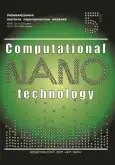Integration of Artificial Intelligence Algorithms in Construction Project Management
- Authors: Makievskiy S.E.1, Yudin A.V.1, Grosheva P.Y.1, Yakovlev M.S.1
-
Affiliations:
- MIREA – Russian Technological University
- Issue: Vol 11, No 5 (2024)
- Pages: 37-46
- Section: SYSTEM ANALYSIS, INFORMATION MANAGEMENT AND PROCESSING, STATISTICS
- URL: https://journal-vniispk.ru/2313-223X/article/view/284843
- DOI: https://doi.org/10.33693/2313-223X-2024-11-5-37-46
- EDN: https://elibrary.ru/CMQDDI
- ID: 284843
Cite item
Abstract
The article examines the application of artificial intelligence algorithms, specifically YOLO v8, for image analysis in the construction industry. The focus is on tasks such as automatic object detection, including window openings and building floors, using data from remote sensing technologies. The stages of technology implementation are described: data collection and processing, visualization, and its use in construction project management. The authors highlight the efficiency of the proposed solution, its high accuracy, and scalability potential. Limitations related to model tuning and the need for adaptation of regulatory standards are also discussed. The project is aimed at optimizing and digitizing construction processes.
About the authors
Stanislav E. Makievskiy
MIREA – Russian Technological University
Author for correspondence.
Email: makievskij@mirea.ru
senior lecturer, Department of Enterprise Programming, Institute of Advanced Technologies and Industrial Programming
Russian Federation, MoscowAlexander V. Yudin
MIREA – Russian Technological University
Email: yudin_a@mirea.ru
ORCID iD: 0000-0002-6802-8603
Scopus Author ID: 56018042000
Dr. Sci. (Econ.), Cand. Sci. (Phys.-Math.); Head, Department of Enterprise Programming, Institute of Advanced Technologies and Industrial Programming
Russian Federation, MoscowPolina Yu. Grosheva
MIREA – Russian Technological University
Email: grosheva@mirea.ru
ORCID iD: 0000-0001-7546-6903
Scopus Author ID: 57204213905
Cand. Sci. (Econ.); associate professor, Department of Enterprise Programming, Institute of Advanced Technologies and Industrial Programming
Russian Federation, MoscowMikhail S. Yakovlev
MIREA – Russian Technological University
Email: yakovlev_m@mirea.ru
senior lecturer, Department of Enterprise Programming, Institute of Advanced Technologies and Industrial Programming
Russian Federation, MoscowReferences
- Hou L., Li H., Lu M. et al. Application of photogrammetry of unmanned aerial vehicles for quality control in construction projects. Journal of Civil Engineering and Management. 2021. No. 25 (8). Pp. 779–791.
- Hu Z., Zhang W., Duan Z. Quality control in construction based on BIM and big data technology. In: Achievements in the field of civil engineering. 2020.
- Tan P., Xie H., Yao Y. Quality control of concrete structures based on computer vision technology. In: Achievements in the field of civil engineering. 2020.
- Andreychikov A.V., Andreychikova O.N. System analysis and synthesis of strategic decisions in innovation. Mathematical, heuristic and intellectual methods of system analysis and synthesis of innovations. Textbook. Moscow, 2015. 306 p.
- Makarov I.M., Lokhin V.M., Manko S.V., Romanov M.P. Artificial intelligence and intelligent control systems. Moscow: Nauka, 2020. 336 p.
- Alekseev Yu.V., Somov G.Yu. Urban planning of settlements. The evolution of planning. Moscow: Publishing House of the Association of Construction Universities, 2021. Vol. 1. 336 p.
- Taranukha N.L., Pervushin G.N., Smyshlyaeva E.Yu., Papunidze P.N. Technology and organization of construction processes. Moscow: Publishing House of the Association of Construction Universities, 2022. 192 p.
- Ivakin Ya.A. Intellectualization of GIS. Ontology-based methods. LAP Lambert Academic Publishing, 2010. P. 322.
- Popovich V.V., Potapychev S.N., Pankin A.V. et al. Intelligent GIS in monitoring systems. Trudy SPIIRAN. 2006. Vol. 1. No. 3. Pp. 172–184. (In Rus.)
- Savinykh V.P., Tsvetkov V.Ya. The development of methods of artificial intelligence in geoinformatics. Transport of Russian Federation. 2010. No. 5. Pp. 41–43. (In Rus.)
- Kendal S.L., Green M. An introduction to knowledge engineering. L.: Springer, 2007. 287 p.
- Popovich V. Intelligent GIS Conceptualization. In: Information fusion and geographic information systems, lecture notes in geoinformation and cartography. 2014. Pp. 17−44.
- Voženilek V. Artificial intelligence and GIS: Mutual meeting and passing. International Conference on Intelligent Networking and Collaborative Systems. 2009. Pp. 279–284.
- Chursin A., Makarov Yu. Management of competitiveness. Theory and practice. Springer International Publishing Switzerland, 2015. 378 p.
- Chursin A., Vlasov Y., Makarov Yu. Innovation as a basis for competitiveness: Theory and practice. Springer International Publishing, 2016, 336 р.
Supplementary files








